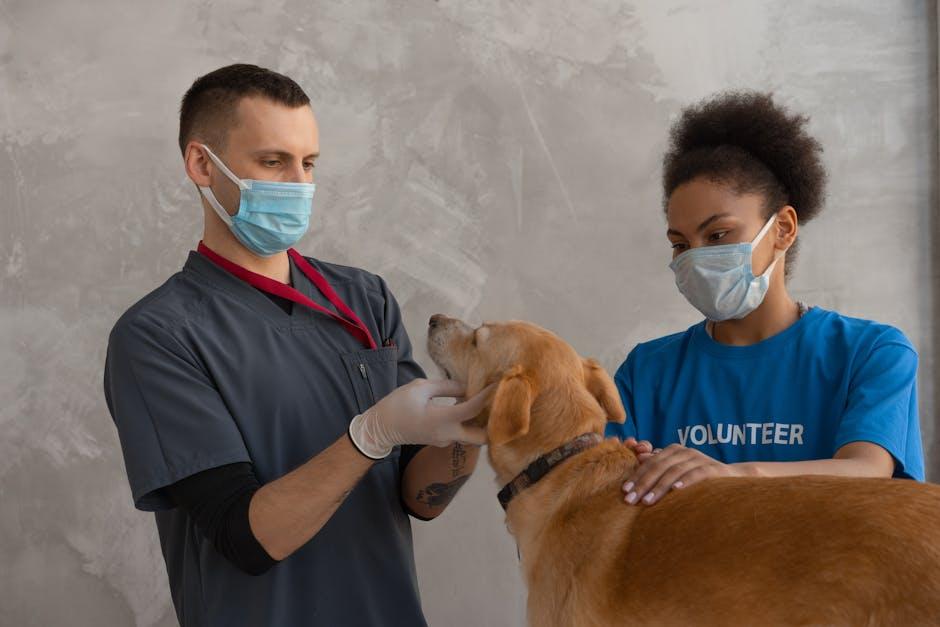Welcoming a new puppy into your home is a joyful and heartwarming experience, filled with wagging tails, playful antics, and endless cuddles. However, amidst the joy of puppy parenthood lies the important responsibility of ensuring your furry friend grows up healthy and strong. One of the crucial aspects of puppy care is protecting them from parasites, which can pose significant health risks if left unchecked. In this article, we will guide you through the best ways to prevent parasites in puppies, offering practical advice and expert tips to keep your little companion safe and thriving. Whether you’re a first-time pet owner or an experienced dog lover, this comprehensive guide will help you navigate the essentials of parasite prevention with confidence and care.
Understanding Common Parasites in Puppies and Their Impact
Young puppies, with their developing immune systems, are particularly vulnerable to a range of parasites that can have significant health implications. These common parasites include roundworms, hookworms, tapeworms, and coccidia. Each of these parasites can cause a variety of symptoms in puppies, ranging from mild to severe. Recognizing the signs early and understanding their impact is crucial for any pet owner.
- Roundworms: Often found in puppies, roundworms can lead to symptoms such as a pot-bellied appearance, vomiting, and diarrhea. These parasites are typically transmitted from the mother or through the environment.
- Hookworms: These parasites can cause anemia and significant weight loss in puppies. They latch onto the intestinal wall, feeding on blood, and are often picked up from contaminated soil.
- Tapeworms: Typically acquired through fleas, tapeworms can cause digestive disturbances and itchiness around the anus, leading to a scooting behavior in puppies.
- Coccidia: These microscopic parasites are known for causing diarrhea in puppies, sometimes severe, which can lead to dehydration and weight loss.
Each type of parasite not only affects a puppy’s immediate health but can also impact long-term growth and development if left untreated. Regular veterinary check-ups, maintaining a clean living environment, and adhering to a deworming schedule are effective strategies to minimize these risks. Additionally, being observant of any changes in your puppy’s behavior or physical condition can be vital in early detection and treatment.

Creating a Parasite Prevention Plan Tailored to Your Puppys Needs
To ensure your puppy leads a healthy, parasite-free life, it’s crucial to develop a plan that considers their specific needs. Every puppy is unique, and factors such as breed, lifestyle, and even geographical location can influence their risk of encountering parasites. Consult with your veterinarian to tailor a plan that addresses these factors and provides comprehensive protection. Regular veterinary check-ups are essential to stay ahead of any potential threats and to adjust your prevention strategy as your puppy grows.
- Routine Deworming: Puppies are particularly susceptible to intestinal parasites. Deworming should start at a young age and be repeated as per your vet’s recommendations.
- Flea and Tick Control: Choose a suitable flea and tick prevention product that aligns with your puppy’s age and weight. Options include topical treatments, collars, and oral medications.
- Hygiene Practices: Maintain a clean environment by regularly washing your puppy’s bedding, toys, and food bowls to reduce the risk of infestation.
Remember, the key to an effective prevention plan is vigilance and consistency. By staying proactive and informed, you can shield your furry friend from parasites, ensuring they thrive during their formative years.
Implementing Daily Habits and Regular Vet Visits for Optimal Protection
Creating a routine of daily habits is crucial for keeping your puppy safe from parasites. Start by establishing a consistent grooming schedule. Regularly brushing your puppy not only keeps their coat healthy but also allows you to check for any signs of fleas or ticks. Bathing your puppy with a vet-recommended shampoo can also help in reducing the risk of infestations.
Beyond daily care, regular vet visits play a pivotal role in your puppy’s health. These check-ups ensure your puppy is up-to-date on vaccinations and parasite prevention treatments. Your vet can provide tailored advice on the best products and practices for your specific breed and region. Remember, a proactive approach with professional guidance is always more effective than reactive treatments.
- Inspect your puppy’s coat for ticks and fleas during grooming sessions.
- Follow a vet-recommended deworming schedule.
- Maintain a clean living environment to minimize exposure to parasites.
















